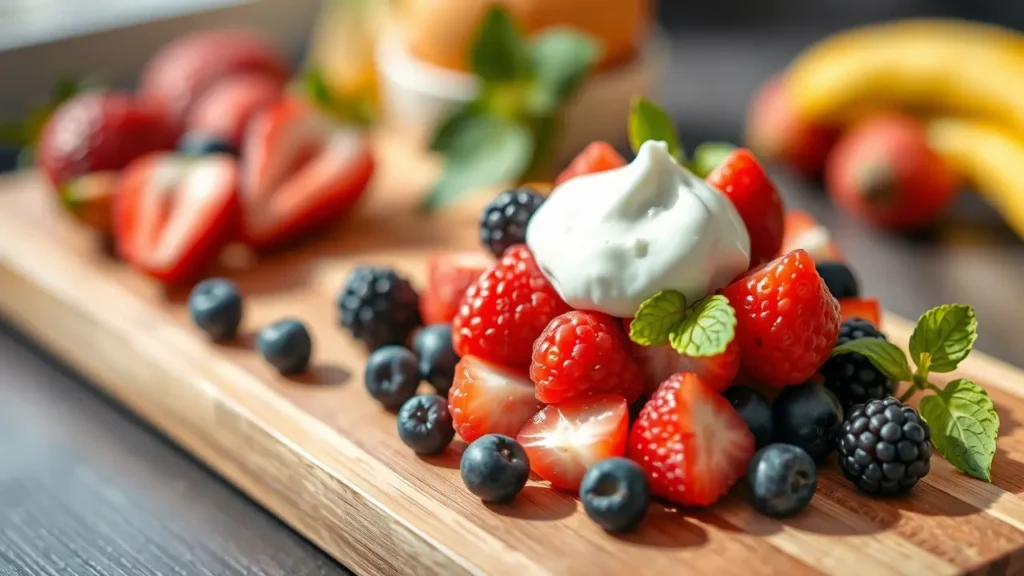Are you tired of deciding what to cook each day? Do you worry about meals that meet your nutritional needs as you age? Meal delivery services can solve this problem. They bring fresh, balanced meals right to your door. Choosing recipes that are senior-friendly makes a huge difference in health, energy, and enjoyment.
Why Seniors Need Special Recipes
As we grow older, our bodies undergo many changes. Digestion slows, making it harder to absorb nutrients efficiently. Appetite may decrease, but nutrient needs do not.
Protein, fiber, calcium, and vitamins become especially important to maintain muscle mass, bone strength, and overall health. Without adequate nutrition, seniors may feel tired, weak, or prone to illness.
At the same time, sodium, added sugar, and unhealthy fats can cause real problems. High sodium can raise blood pressure and strain the heart. Too much sugar can spike blood glucose and increase the risk of diabetes.
Unhealthy fats may contribute to cholesterol problems and heart disease. Choosing meals that limit these ingredients is not optional—it is essential for long-term health.
Meal delivery services offer convenience, but not all meals are created equal. Some options may be overly processed, high in salt, or low in protein. A senior-friendly meal focuses on gentle textures, balanced nutrition, and portion sizes suited for aging bodies.
It should be easy to chew, easy to digest, and rich in nutrients that support energy, bone strength, and healthy weight maintenance.
When planning meals for delivery, several factors matter. Portion size is key—smaller, nutrient-dense meals are often better than large, low-nutrient ones. Taste matters, too. If meals are bland or unappealing, seniors may skip them, losing important nutrients.
Colorful vegetables, lean meats, whole grains, and healthy fats make meals visually inviting, flavorful, and nourishing.
This guide will break down which recipes are ideal for seniors, why these foods matter, and how meal delivery services can make healthy eating simple, enjoyable, and reliable. By understanding the nutritional needs unique to seniors, you can choose meals that support vitality and independence every day.
Build: Essential Components of Senior-Friendly Meals
Protein Choices
Protein is essential for maintaining muscle strength and supporting recovery as we age. Aging muscles lose strength more quickly when protein intake is low, making it crucial for seniors to include protein in every meal.
Regular protein intake helps maintain mobility, balance, and overall energy levels. Good options for seniors include lean chicken breast with the skin removed, fish such as salmon and cod, eggs, beans, lentils, and low-fat dairy. These foods provide essential amino acids that support muscles, bones, and immune function.
Meal delivery services can prepare these protein sources in ways that are easy to chew and digest. Steaming, baking, or slow-cooking keeps the texture soft and gentle on the mouth.
For seniors with dental issues or difficulty swallowing, proteins can be finely chopped or pureed without losing nutrients or flavor. Including protein in breakfast, lunch, and dinner ensures that seniors receive consistent support for muscle maintenance and overall health.
Vegetables and Fruits
Vegetables and fruits are vital for fiber, vitamins, and minerals. Fiber supports healthy digestion, prevents constipation, and helps maintain steady blood sugar levels. Fruits provide natural energy and antioxidants that protect cells from damage.
A senior-friendly meal should include a variety of colors and textures, which also makes the plate more visually appealing. Soft-cooked carrots, spinach, and zucchini, along with steamed broccoli or cauliflower, are excellent vegetable choices.
Mashed sweet potatoes provide gentle sweetness and fiber, while fresh or baked fruits, such as apples or pears, add natural flavor and nutrients.
It is important to cook vegetables to a tender consistency without overcooking. Overcooked vegetables lose vitamins and minerals and may become mushy. Including fruit at breakfast or dessert ensures that seniors receive extra vitamins and antioxidants throughout the day.
By combining protein with colorful vegetables and fruits, meal delivery services can provide balanced, flavorful, and nutrient-rich meals that support energy, strength, and overall well-being.
Whole Grains
Whole grains are an important source of energy and fiber for seniors. Fiber supports digestion, helps maintain a healthy weight, and stabilizes blood sugar levels.
Choosing whole grains instead of refined grains ensures that seniors get more nutrients, including B vitamins, minerals, and antioxidants. Examples of healthy whole grains include brown rice, quinoa, whole wheat pasta, and oats.
Meal delivery services can combine these grains with vegetables and proteins to create balanced, flavorful dishes. For seniors, soft textures are ideal, making the grains easy to chew, but they should still have a slight firmness to support proper chewing and digestion.
Including a variety of grains in meals not only adds flavor but also provides steady energy throughout the day, supporting physical activity and overall vitality.
Healthy Fats
Healthy fats are essential for brain function, heart health, and the absorption of fat-soluble vitamins. Seniors should include sources such as olive oil, avocado, finely chopped nuts or seeds, and fatty fish in their diet. These fats help maintain healthy cholesterol levels and support cognitive function.
It is important to limit saturated and trans fats, which can contribute to heart disease. Avoid deep-fried or heavily processed meals. Meal delivery services can offer grilled, baked, or sautéed options that naturally include healthy fats. Using these cooking methods preserves nutrients and flavor while keeping meals heart-friendly.
Low Sodium and Sugar
Seniors need to be mindful of sodium and added sugar in meals. High sodium intake can raise blood pressure, putting stress on the heart and kidneys. Excess sugar can cause spikes in blood glucose, increasing the risk of diabetes and energy crashes.
Meal delivery services can reduce sodium by using herbs, spices, lemon, and vinegar to add flavor instead of salt.
Sweetness can come naturally from fruits or other natural ingredients instead of sugar. By choosing meals with low sodium and minimal added sugar, seniors can protect their heart, maintain stable energy, and support long-term health.
Examples of Senior-Friendly Meals
Breakfast Ideas
Breakfast is the most important meal to start the day with energy and nutrients. Seniors need meals that provide protein, fiber, and vitamins without being hard to digest.
Scrambled eggs with spinach and tomatoes are a great option. They are soft, easy to chew, and packed with protein and vitamins. Oatmeal with mashed banana and a sprinkle of cinnamon offers gentle energy, fiber, and natural sweetness.
Greek yogurt with soft berries and chia seeds provides protein, calcium, and antioxidants. Smoothies made with protein powder, milk, and fruit give a quick, easy-to-digest option for mornings when appetite is low. These breakfasts support energy, focus, and healthy digestion.
Lunch Ideas
Lunch should maintain energy and nutrients to power through the afternoon. Senior-friendly meals include chicken and vegetable soup with whole grain bread, which is warm, soft, and rich in protein and fiber. Lentil stew with soft vegetables is hearty, easy to chew, and full of vitamins and minerals.
Salmon salad with avocado and cooked quinoa combines protein, healthy fats, and fiber for balanced nutrition. Soft-cooked pasta with vegetables and olive oil is another gentle option, providing carbohydrates, fiber, and healthy fats.
Portion sizes are designed to be satisfying but not overwhelming. These meals ensure seniors stay full, energized, and nourished until dinner.
Dinner Ideas
Dinner supports recovery and relaxation after a long day. Meals should be nutrient-rich but not too heavy. Baked cod with mashed sweet potatoes and steamed carrots offers protein, fiber, and vitamins in a soft, easy-to-eat format.
Turkey meatballs with soft rice and sautéed zucchini provide protein and vegetables without being greasy. Vegetable and bean casseroles are full of fiber and nutrients, and soft roasted chicken with mashed cauliflower combines protein and gentle textures.
Avoid foods that are too spicy, salty, or oily, as they may disrupt digestion or sleep. A balanced dinner promotes recovery, supports muscle maintenance, and helps seniors feel satisfied and comfortable before bedtime.
Snacks and Extras
Healthy snacks help maintain steady energy levels between meals. Cottage cheese with soft fruit provides protein and calcium. Smooth nut butter on whole-grain crackers offers healthy fats and fiber.
Soft-cooked vegetables with hummus add vitamins and gentle fiber, while a small portion of finely chopped nuts or seeds provides nutrients without being hard to chew.
Meal delivery services can include snacks along with main meals, reducing the effort needed to prepare them and ensuring seniors always have nourishing options at hand. By including planned snacks, seniors avoid energy crashes and maintain consistent nutrition throughout the day.
Meal delivery is more than convenience. It provides a path to maintain health, strength, and independence. Choosing senior-friendly recipes ensures you get the nutrients your body needs.
Plan weekly menus in advance to include variety. Rotate proteins, grains, and vegetables. Include a mix of cooked and fresh items. Monitor how your body responds and adjust portions or textures.
With careful selection, meal delivery can become a trusted part of your healthy aging plan. You gain peace of mind, better energy, and more time to enjoy daily life.
Healthy eating is achievable at home, without hours in the kitchen. By focusing on senior-friendly recipes, meal delivery services can support your health, happiness, and independence for years to come.




